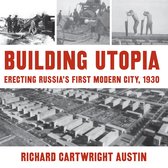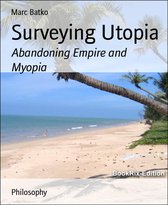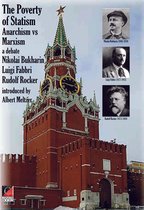Building Utopia Ebook Tooltip Ebooks kunnen worden gelezen op uw computer en op daarvoor geschikte e-readers. The Spanish Revolution 1936-1937
Afbeeldingen
Sla de afbeeldingen overArtikel vergelijken
- Engels
- E-book
- 1230000272797
- 08 oktober 2014
- Epub zonder kopieerbeveiliging (DRM)
Productbeschrijving
Within the Spanish anarchist and anarcho-syndicalist movements there were three distinct points of view on the question of war and revolution. The first, probably the majority view, was that the war would be over in a matter of weeks, after all, a few days had been enough to rout the army in Barcelona and other industrial centres, and that the social revolution and Libertarian Communism as debated and adopted by the CNT’s national congress at Zaragoza in February, five months previously, was an inseparable aspect of the struggle against economic and social oppression. Thus, the movement should proceed immediately to socialise the factories, the land and their communities.
The second position was that held by members of the regional, national and peninsular committees of the CNT-FAI, the so-called ‘notables’, office holders such as such as Horacio Prieto, Mariano Rodriguez, Federica Montseny, Diego Abad de Santillan, García Oliver, etc. They anticipated a lengthy war and opposed implementing Libertarian Communism until the war was won. They opted instead for compromising alliances with the bourgeois Republican, Catalanist and Stalinist parties.
Their argument was that such a strategy would prevent a situation developing wherein a victorious but exhausted CNT might be overwhelmed by another political force which had been more sparing with its forces ie, the Spanish Communist Party.
It was a fatal strategy that quickly absorbed them, undermined their principles and transformed what had hitherto been a great instrument of the working class into just another rigid bureaucratic institution.
The third body of opinion, a minority one held by militants such as Durruti, Camillo Berneri, Jaime Balius, and so on (and one which I incidentally agree with) also anticipated a lengthy war because of the involvement of Germany and Italy — but held that war and revolution were inseparable.
Only a libertarian revolution could finally destroy fascism because to do so meant destroying the state, since fascism only means a certain mode of the state: all states turn fascist when the threat to the privilege that the state protects — and to a degree also embodies — becomes strong enough, which happens when the participatory procedures of the state can no longer secure that privilege.
Fascism, in other words, is enforced class collaboration, as opposed to the voluntary class collaboration of parliamentary government.
The author's main contention is, briefly, that between July 21 and the end of August 1936, the so-called ‘notables’ of the CNT-FAI regional, national and peninsular committees abandoned all pretence of being revolutionary organs.
Instead, they constituted a vested interest structure that served, primarily, to apply the brakes to the spontaneous revolutionary activity of the union rank and file and to repress the revolutionary activists of the Libertarian Youth, the confederal defence cadres, the action groups and affinity groups such as the ‘Friends of Durruti’.
They promoted ‘Anti-fascist unity’ and state power at the expense of anarchist principles and values, and imposed the hegemony of the Catalan CNT–FAI leadership over the local revolutionary committees and the general assemblies, not only of Catalonia, but of Aragón as well particularly the Regional Defence Council of Aragón. Their principal aim being to perpetuate their power base, even at the expense of the revolutionary anarchist principles and values that had inspired the largest mass labour union in Spanish history.
For them the instrumental means had become the organisational end. Not only that; they were now part of a state that was increasingly dominated not just by reformist, welfarist, egalitarian social democrats, but by the agents of Soviet communism, anarchism’s deadliest enemy.
The ‘notables’ careers as anarchists were over — they were now counter-revolutionaries.
Productspecificaties
Inhoud
- Taal
- en
- Bindwijze
- E-book
- Oorspronkelijke releasedatum
- 08 oktober 2014
- Ebook Formaat
- Epub zonder kopieerbeveiliging (DRM)
Betrokkenen
- Hoofdauteur
- Stuart Christie
- Hoofduitgeverij
- ChristieBooks
Lees mogelijkheden
- Lees dit ebook op
- Android (smartphone en tablet) | Kobo e-reader | Desktop (Mac en Windows) | iOS (smartphone en tablet) | Windows (smartphone en tablet)
Overige kenmerken
- Studieboek
- Nee
EAN
- EAN
- 1230000272797
Je vindt dit artikel in
- Categorieën
-
Kies gewenste uitvoering
Prijsinformatie en bestellen
De prijs van dit product is 3 euro en 26 cent.- E-book is direct beschikbaar na aankoop
- E-books lezen is voordelig
- Dag en nacht klantenservice
- Veilig betalen
Rapporteer dit artikel
Je wilt melding doen van illegale inhoud over dit artikel:
- Ik wil melding doen als klant
- Ik wil melding doen als autoriteit of trusted flagger
- Ik wil melding doen als partner
- Ik wil melding doen als merkhouder
Geen klant, autoriteit, trusted flagger, merkhouder of partner? Gebruik dan onderstaande link om melding te doen.








